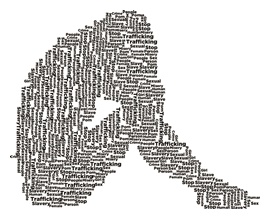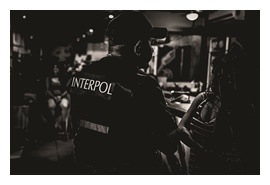By Annalise Kempen
How is it possible that a crime which generates an estimated $150 billion per year remains largely hidden, especially since it occurs in virtually every country across the world? Is it because those in the know are too scared to come forward due to the possibility of retaliation or because they choose to remain quiet?
Or does the problem lie with law enforcement agencies that are not doing enough to find the victims and ultimately the perpetrators? Or is there another role-player, namely the financial sector, that we seldom consider playing a significant role that is indirectly complicit in facilitating the proceeds of this crime?
This is a crime that we know as human trafficking or modern slavery.
What is human trafficking?
Human trafficking is the process whereby people are recruited within their communities and countries of origin and transported to destinations where they are exploited for the purposes of forced labour, prostitution, domestic servitude - among other forms of exploitation (SAMLIT, 2023).
The UN Protocol to prevent, suppress and punish the trafficking in persons is the world's primary legal instrument to combat human trafficking. It was adopted by the United Nations in November 2000 as part of the United Nations Convention against Transnational Organised Crime and is generally referred to as the Palermo Protocol (UNODC, nd). Article 3 of this Palermo Protocol defines human trafficking as follows:
"'Trafficking in persons' shall mean the recruitment, transportation, transfer, harbouring or receipt of persons by means of the threat or use of force or other forms of coercion, of abduction, of fraud, of deception, of the abuse of power or of a position of vulnerability or of the giving or receiving of payments or benefits to achieve the consent of a person having control over another person, for the purpose of exploitation. Exploitation shall include, at a minimum, the exploitation of the prostitution of others or other forms of sexual exploitation, forced labour or services, slavery or practices similar to slavery, servitude or the removal of organs."
The United Nations Office on Drugs and Crime (UNODC) further defines three basic elements of trafficking where the actions are carried out by specific means for a specific purpose:
- Acts: recruitment, transportation, transfer, harbouring, receipt, patronising or soliciting;
- Means: force or other forms of coercion, abduction, fraud, deception, the abuse of power or a position of vulnerability, giving or receiving of payments or benefits to achieve the consent of a person having control over another person; and
- Purpose: exploitation of the prostitution of others or other forms of sexual exploitation, forced labour or services, slavery or practices similar to slavery, servitude, removal of organs.
In South Africa, the Prevention and Combating of Trafficking in Persons Act 7 of 2013, which came into effect on 9 August 2015, gives effect to the country's obligation under the United Nations' Palermo Protocol to prevent, suppress and punish trafficking in persons, especially women and children. Section 4(1) of this Act 7 of 2013 defines the offence of "trafficking in persons" as follows:
"Any person who delivers, recruits, transports, transfers, harbours, sells, exchanges, leases or receives another person within or across the borders of the Republic, by means of –
- A threat of harm

- The threat or use of force or other forms of coercion
- The abuse of vulnerability
- Fraud
- Deception
- Abduction
- Kidnapping
- The abuse of power
- The direct or indirect giving or receiving of payments or benefits to obtain the consent of a person having control or authority over another person
- The direct or indirect giving or receiving of payments, compensation, rewards, benefits or any other advantage, aimed at either the person or an immediate family member of that person or any other person in close relationship to that person, for the purpose of any form or manner of exploitation -
is guilty of the offence of trafficking in persons;
4(2) Any person who -
(a) adopts a child, facilitated or secured through legal or illegal means;
(b) concludes a forced marriage with another person, within or across the borders of the Republic for the purpose of the exploitation of that child or other person in any form or manner,
is guilty of an offence."
******************************
[This is only an extract of an article that is published in Servamus: May 2023. The rest of the article discusses the background to the SAMLIT “Follow the money” report; the situation in South Africa; some of the investigative challenges and the importance of following the money in organised crime. If you are interested in reading more, send an e-mail to: This email address is being protected from spambots. You need JavaScript enabled to view it. or a WhatsApp to: 078 712 1745 to find out what you have to do. Ed.]